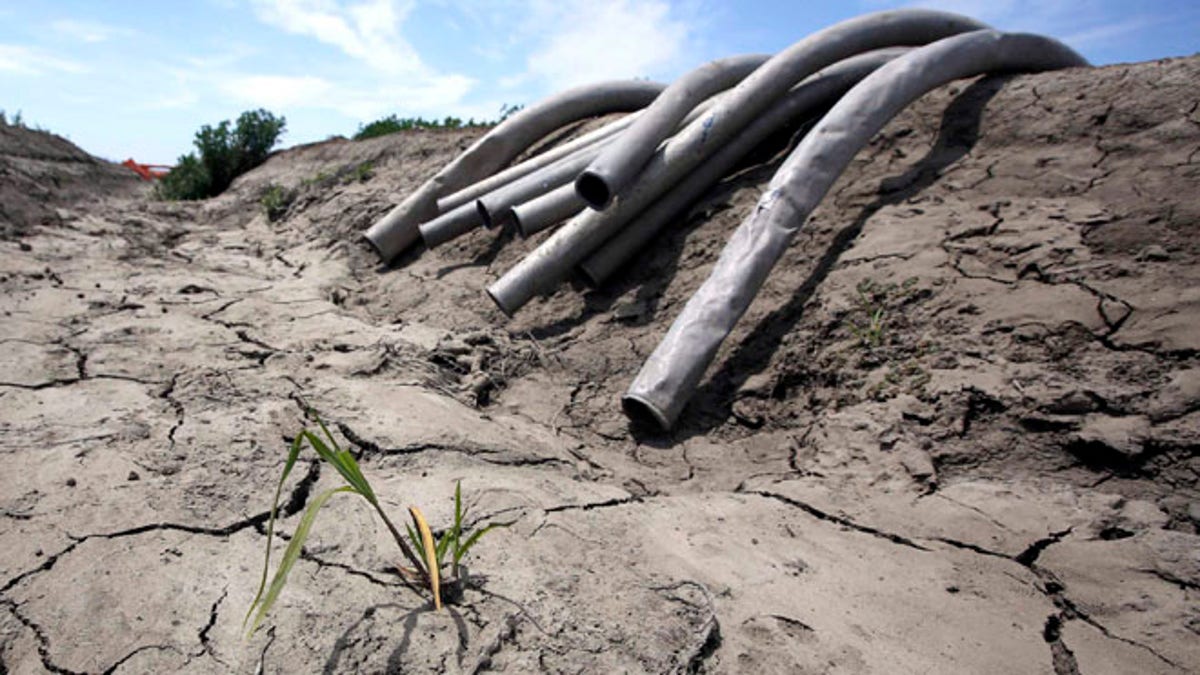
May 18, 2015: Irrigation pipes hang along a dried irrigation canal on a field farmed by Gino Celli near Stockton, Calif. (AP Photo/Rich Pedroncelli, File)
California’s drought-stricken cities set a record for water cuts, reducing usage 29 percent in May, according to data released by a state agency Wednesday.
Regulators hope the savings will last through the summer as California communities have been ordered to cut water usage by 25 percent compared to 2013 levels. Gov. Jerry Brown announced the water conservation order in April.
Chairwoman of the State Water Resources Board, Felicia Marcus, said the results show it’s possible to meet the steep targets set forth by the state.
"It's gratifying that far more communities are stepping up, and we want to see this much more through the summer," Marcus said. "It ends up putting off the need for much harsher rationing, which has greater impacts on people and the economy."
California is in the fourth year of a devastating drought that has leveled some rural communities, prompted some farmers to leave fields unplanted or tap expensive water supplies and dented fish populations. Many cities have avoided the brunt of the dry spell because of backup supplies and preparation, but Brown wanted conservation efforts ramped up with no clear end to the drought in sight.
May’s weather savings were the best showing since the state starting tracking conservation last summer. The report followed several months of tepid conservation, 13.5 percent in April and 4 percent in March. Conservation may have been skewed by rain in parts of the state in May, which reduces the need to water lawns.
The data is self-reported by more than 400 California water departments and includes residential and business consumption. All regions of the state showed signs of improvement.
Sacramento and its surrounding communities were the state's top performer, cutting water use by nearly 40 percent.
The southern coast, where more than half of the state's population lives in cities including Los Angeles and San Diego, conserved 25 percent in May after months of lackluster savings. Temperatures in the region were about 5 degrees cooler compared to May 2013 with an additional half inch of rain, according to National Oceanic and Atmospheric Administration data.
Regulators have been encouraging Californians to let their lawns go dry this summer as the easiest way to save large amounts of water and maintain local supplies if the drought continues.
The water board has assigned each community a mandatory conservation target between 4 and 36 percent, depending on how much water residents used last summer, that will be tracked between June and February. Cities that don't meet these targets face fines or state-imposed restrictions on water use.
Some have complained these targets are unfair because it doesn't take into account water savings made before the drought or how secure local supplies are. The city of Riverside is suing the water board over conservation, saying it has ample groundwater supplies.
The Associated Press contributed to this report

